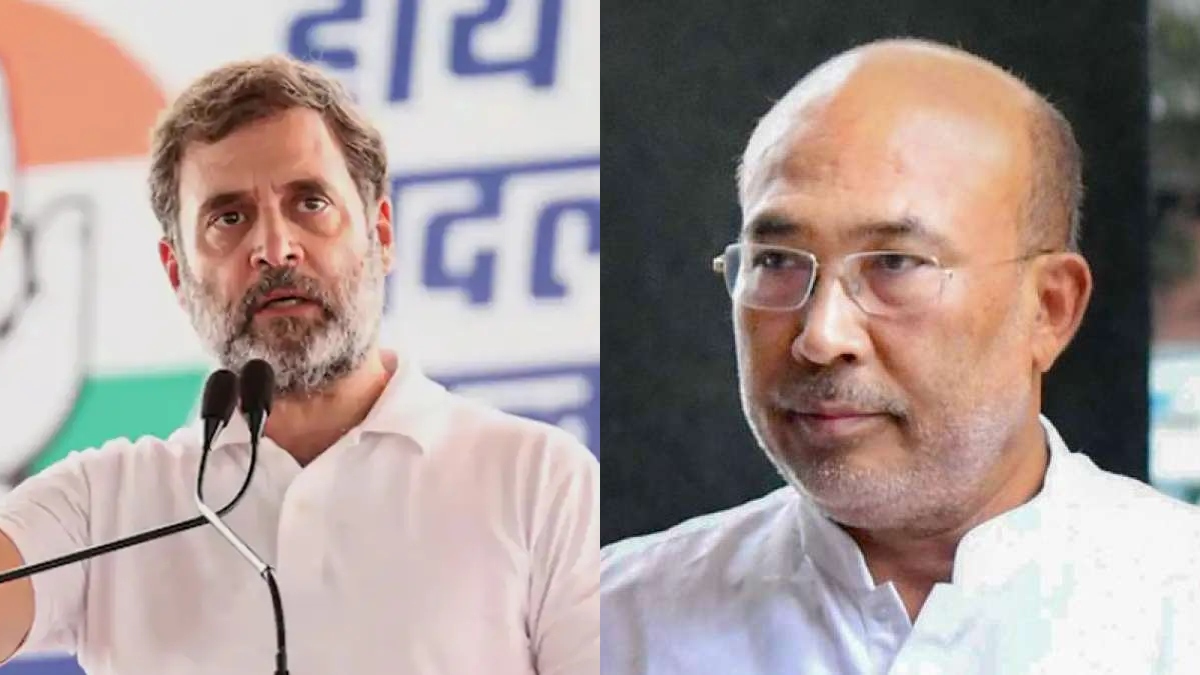 |
|
The resignation of Manipur Chief Minister N. Biren Singh has ignited a fierce political debate, with accusations and counter-accusations flying between the ruling BJP and the opposition Congress. Rahul Gandhi, leader of the Congress party, directly implicated Singh in the nearly two-year-long ethnic violence that has plagued the state, resulting in over 250 deaths and widespread displacement. Gandhi's statement, delivered via X (formerly Twitter), unequivocally blamed Singh for instigating division between the Meitei and Kuki communities, asserting that Prime Minister Narendra Modi's continued support for Singh amidst the escalating crisis demonstrates a failure of leadership and a disregard for the suffering of the Manipuri people. This strong condemnation underscores the deep political divisions surrounding the handling of the Manipur conflict and raises serious questions about the effectiveness of the central government's response.
Gandhi's criticism extends beyond Singh, directly targeting Prime Minister Modi for inaction. The absence of a visit by Modi to Manipur throughout the violence has become a focal point of opposition criticism, with Gandhi repeatedly calling for Modi's immediate intervention to address the situation. This demand highlights the growing public pressure for a more robust response to the crisis and points to a significant political challenge for the ruling BJP. Gandhi's assertion that the resignation was a result of mounting public pressure, the Supreme Court investigation, and the no-confidence motion by the Congress party highlights the political pressure that has been mounting and emphasizes the extent to which this crisis has impacted the national political landscape.
In contrast to Gandhi's accusatory statements, Manipur BJP President A. Sharda Devi defended Singh's resignation, framing it as a selfless act undertaken for the good of the state. Devi insisted there were no divisions within the party and presented the resignation as a strategic move designed to safeguard Manipur's integrity and security. This differing perspective highlights the complexities of the situation and suggests that the internal dynamics within the BJP in Manipur may also be in flux. The contrasting narratives presented by the Congress and the BJP demonstrate the deep partisan divisions surrounding the Manipur crisis and will likely continue to shape the political discourse in the coming days and weeks.
The underlying cause of the violence, a Manipur High Court ruling regarding the inclusion of the Meitei community in the Scheduled Tribes list, remains a contentious issue. The rally held by the All Tribal Students Union of Manipur (ATSUM) in response to this ruling sparked the initial clashes, highlighting the deep-seated ethnic tensions and the complexities of resolving the conflict. Addressing these underlying issues will be crucial in any long-term solution to restore peace and stability in Manipur. The need for a comprehensive strategy that acknowledges the historical and social factors contributing to the conflict is paramount, and any lasting resolution will require a commitment to addressing these root causes.
Biren Singh's resignation, while seemingly a significant event, does not automatically guarantee an end to the violence or a swift resolution to the underlying issues. The resignation comes just one day before the start of the Manipur Assembly's budget session, indicating the heightened political sensitivity surrounding the crisis. Singh's request in his resignation letter for continued central government efforts to maintain Manipur's territorial integrity and safeguard the security of its people underscores the ongoing challenges facing the state. The path forward requires not just political maneuvering but also a concerted effort to address the complex ethnic tensions and social grievances that fuel the conflict. The long-term success in resolving the crisis depends heavily on the ability of the government to engage in meaningful dialogue with all stakeholders and to implement policies that address the root causes of the violence.
The situation in Manipur underscores the importance of effective governance and the critical role of political leadership in managing ethnic tensions and resolving conflict. The ongoing crisis raises questions about the adequacy of the response from both state and central governments, prompting intense scrutiny of their policies and actions. The lack of a swift and decisive response has allowed the violence to fester for nearly two years, leading to widespread suffering and leaving a deep scar on the state. Moving forward, it is crucial to learn from the mistakes made and to adopt a more proactive and comprehensive approach to conflict resolution, emphasizing dialogue, reconciliation, and the equitable distribution of resources and opportunities.
Source: Biren Singh instigated division in Manipur, alleges Rahul Gandhi after CM's resignation
